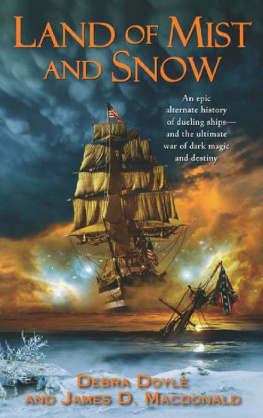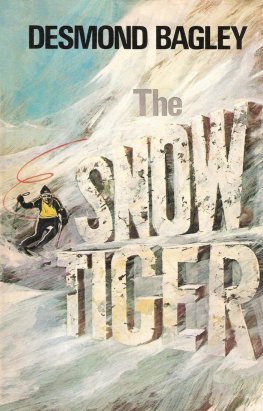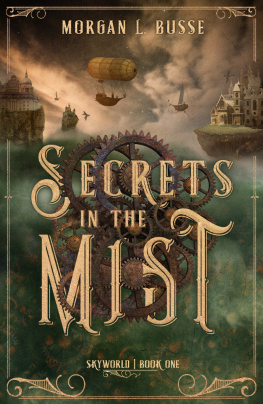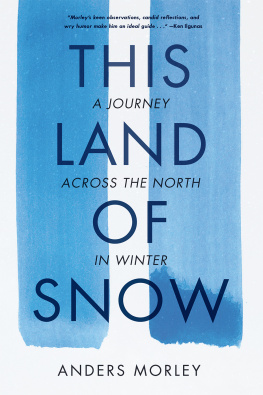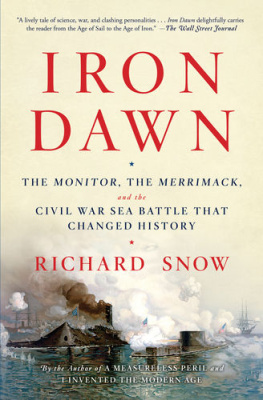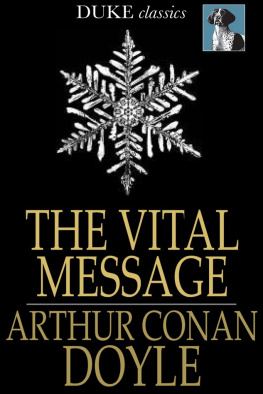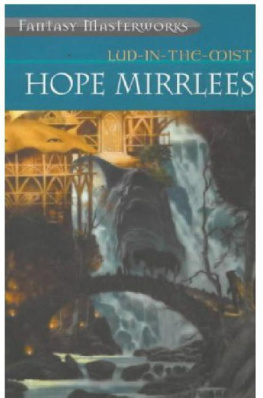Debra Doyle - Land of Mist and Snow
Here you can read online Debra Doyle - Land of Mist and Snow full text of the book (entire story) in english for free. Download pdf and epub, get meaning, cover and reviews about this ebook. year: 2006, publisher: HarperCollins, genre: Adventure. Description of the work, (preface) as well as reviews are available. Best literature library LitArk.com created for fans of good reading and offers a wide selection of genres:
Romance novel
Science fiction
Adventure
Detective
Science
History
Home and family
Prose
Art
Politics
Computer
Non-fiction
Religion
Business
Children
Humor
Choose a favorite category and find really read worthwhile books. Enjoy immersion in the world of imagination, feel the emotions of the characters or learn something new for yourself, make an fascinating discovery.
- Book:Land of Mist and Snow
- Author:
- Publisher:HarperCollins
- Genre:
- Year:2006
- Rating:3 / 5
- Favourites:Add to favourites
- Your mark:
- 60
- 1
- 2
- 3
- 4
- 5
Land of Mist and Snow: summary, description and annotation
We offer to read an annotation, description, summary or preface (depends on what the author of the book "Land of Mist and Snow" wrote himself). If you haven't found the necessary information about the book — write in the comments, we will try to find it.
Land of Mist and Snow — read online for free the complete book (whole text) full work
Below is the text of the book, divided by pages. System saving the place of the last page read, allows you to conveniently read the book "Land of Mist and Snow" online for free, without having to search again every time where you left off. Put a bookmark, and you can go to the page where you finished reading at any time.
Font size:
Interval:
Bookmark:


in memoriam
larry l. doyle
margaret esterl macdonald
IN LATE JANUARY OF 1863 I WAS AN IDLER, ASsigned to the War Department ofice at 88 Whitehall Street in the city of New York after my ship, USS
Tisdale, burned when the Rebels took Norfolk.
Time weighed heavily upon me. The war, which some had at irst expected to be over in a matter of weeksor a few months at mostwould soon be entering its third year, and I could not fail to perceive that matters stood at a most perilous juncture.
In the west, the free movement of our forces up and down the Mississippi still broke upon the rock that was Confederate-held Vicksburg; to the east and south, in the Atlantic and the Gulf of Mexico, Rebel commerce raiders and blockade runners ranged freely. Everywhere, my brother oficers were gaining rank and experiencing sea-time, whether in gunboats on the inland waterways or in warships on the open seas, maintaining the blockade and chasing Confederate raiders.
Meanwhile, I sat iling papers in an obscure ofi ce.
Debra Doyle a nd James Macdonald
President Lincoln had freed all the slaves in Rebel territory. My daily hope was that some similar edict would arrive to free me from my own labors. From my window overlooking the harbor, I could watch the Navys vessels come and goa species of keen torture, since I feared that such a long period of shore duty would see my career stalled, if not de-railed entirely, the ultimate goal of command at sea forever placed beyond my reach.
So it was that on the morning of January 31st a messenger found me laboring at my desk, checking one long bureaucratic list against another. He had an envelope from the Navy Department in his hand, with my name on the front. I fairly tore the envelope from his grasp and opened it.
What it contained was indeed the answer to my nightly prayer. I was detached immediately from my current assignment and ordered to travel by fastest available means to the Naval Arsenal at Watervliet.
There I was to inspect and take possession of a dozen ten-inch Rodman guns, thence to accompany them to the place where USS Nicodemus might lie, in order to take my position as head of her gunnery department. Nicodemus was new construction; I would be a plank owner. I was further informed that Nicodemus was even then being itted out in preparation for her sea trials.
The remainder of the morning I spent in checking out of my temporary billet, drawing my health and pay records, and turning over my responsibilities to a hapless civilian clerk.
LAND OF MIST AND SNOW
I had been staying at a hotel under per diem. I lost no time in packing, and the afternoon saw me at the Hudson River Railroad station in my dress blue uniform, purchasing a ticket to Albany. It was long past dark by the time a hired carriage deposited me at the gates of the Arsenal.
A Marine guard directed me to the duty ofi cer, who saw to my placement in the bachelor ofi cers
quarters. There I said my prayers and went to sleep, wondering what kind of craft Nicodemus might be. I had not heard of her before, though in an eddying backwater such as my ofice at Whitehall Street that would not be a surprise. Still, a sloop of war mounting a broadside of six Rodmans and, I supposed, lesser pieces besides, would be suficient. I was well satisied with my prospects.
Morning found me in the Arsenal commanders ofice, presenting my compliments and my orders.
The commander, a pleasant enough fellow named Winchell who had preceded me by two years at the Academy, greeted me and offered to accompany me himself on my inspection tour of the guns. I felt it was hardly my place to refuse, and I was just as glad to talk again with a sailor; my previous tour had placed me among civilians and invalided Army men, landsmen all.
As it turned out, he wanted to do more than talk of mutual acquaintances while showing off his command to an outsider. He wanted to pump me for information, information that I sadly lacked, and which bafled me as well.
Debra Doyle a nd James Macdonald
You see, Johnny, he said as we entered the sheds facing the Hudson where the guns stood, theyre cast to spec, though why the devil the specs were written that way eludes me.
The guns stood in a burnished rank, gleaming the yellow-gold of brass.
Brass cannon, I said.
Yes, brass, as ordered, Winchell said, and here he gestured to a petty oficer standing by. And virgin brass too; never before made into any other shape.
The petty oficer strode over and presented his leader with a sheaf of paper, which he reviewed, then handed to me. It was the casting history of each of the Rodmans, from the irst smelting of the copper and zinc to the present.
I checked over the cannon carefully. I was no stranger to ordnance; the lives of myself and my shipmates, not to mention the defeat of our enemies, were dependent on the lawless construction and operation of the cannon. I requested an inspection mirror and a light, and examined every inch of the barrels, inside and out. They did in fact appear to be without scratch, crack, or other imperfection.
I turned to Winchell at length. You can be proud of your work, sir, I said.
Do you wish to examine the ammunition as well? he inquired.
To the same speciications? said I.
The same, virgin brass.
I cant believe it will be necessary to handle each LAND OF MIST AND SNOW
ball, I said, which brought a smile to his lips. Winchell gave orders that the cannon were to be crated and loaded on a barge for transport. He then invited me to join him for a belated lunch. I accepted with pleasure.
Over cigars at the oficers club, I made bold to breach the question directly.
Where is it that these guns that I just signed for are to be shipped?
To Brooklyn, for the Navy Yard. So say the lad-ing documents. They are being loaded onto a barge even now. A steam tug will tow them. Beyond that, I know nothing.
Across the river in Manhattan I had not heard of a ship under construction that required brass cannon. I asked Winchell directly if he had ever heard of such a vessel.
No, indeed not. But I can scarcely hear of everything. Perhaps shes been laid in Charlestown.
Perhaps.
He kindly walked me to the barge at quayside where my dozen Rodmans, neatly crated, now lay side by side on a barge. Crates that I supposed contained brass shot illed a second barge. We shook hands, saluted, and I presented my orders to the master of the civilian tug that was to take me down the same river that I had only lately ascended. The pilothouse of the tug was cramped, and the smell of the engines pervasive, but I eagerly accepted the offer to make the journey there.
A brisk wind was blowing, adding its bite to the 6
Debra Doyle a nd James Macdonald
winter air, while the sun dipped toward the western hills. A young enlisted man brought my seabag from my quarters on shore and laid it on the fantail of the tug, lashed to the rail. Towing hawsers were made fast to the barges, and with our whistles screaming out we made way down river. The sun set as we steamed along, the lighthouses of the Hudson illuminated, as we made our way to the East River of Manhattan and to the Navy Yard on its eastern shore.
We came alongside a brig, triumph lettered on her sternboard in gold leaf, where we were evi-dently expected. The watch soon appeared with a lantern, a ladder dropped to our deck, and a working party swung out booms to load the cargo from the barge to the brigs hold.
Next pageFont size:
Interval:
Bookmark:
Similar books «Land of Mist and Snow»
Look at similar books to Land of Mist and Snow. We have selected literature similar in name and meaning in the hope of providing readers with more options to find new, interesting, not yet read works.
Discussion, reviews of the book Land of Mist and Snow and just readers' own opinions. Leave your comments, write what you think about the work, its meaning or the main characters. Specify what exactly you liked and what you didn't like, and why you think so.

